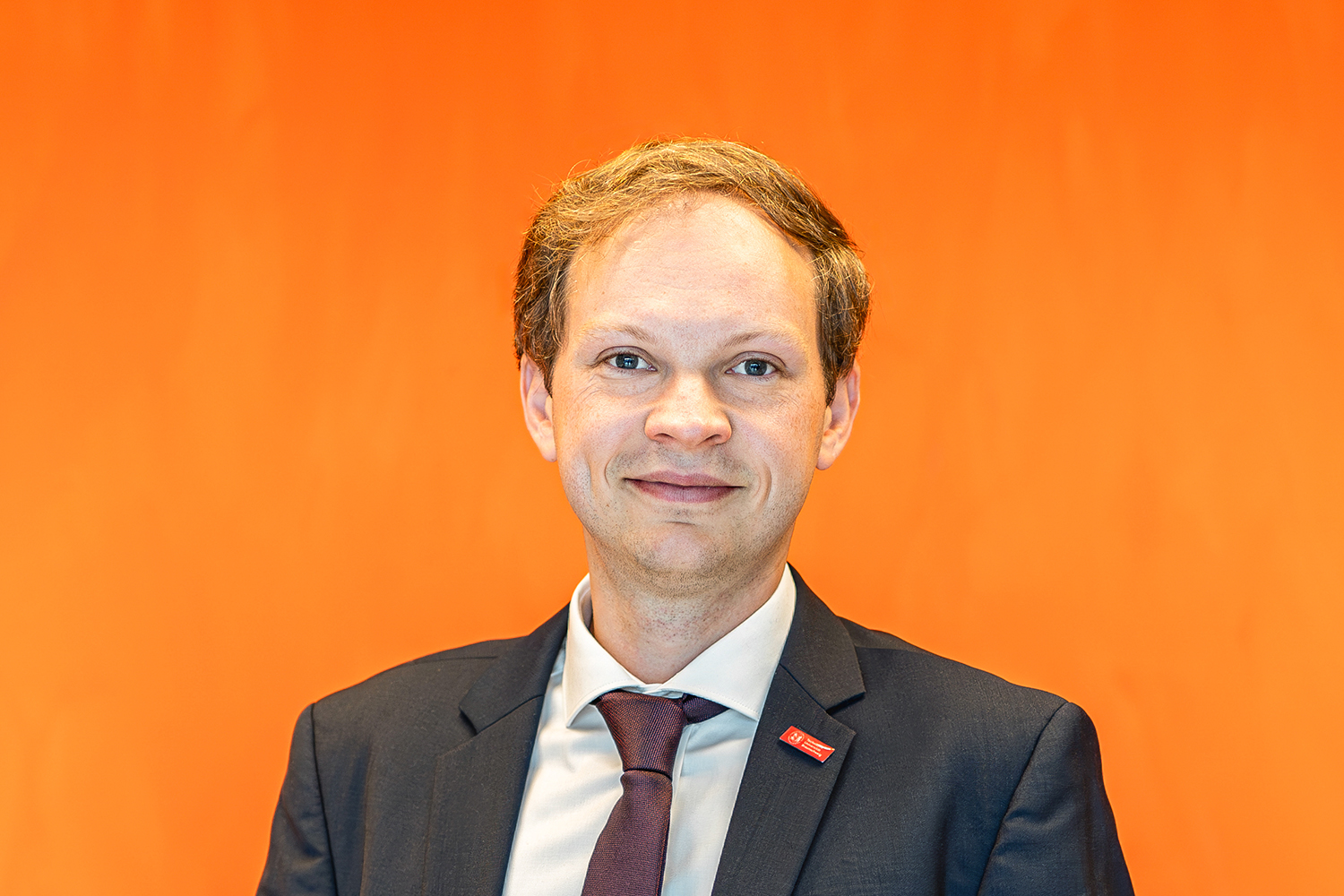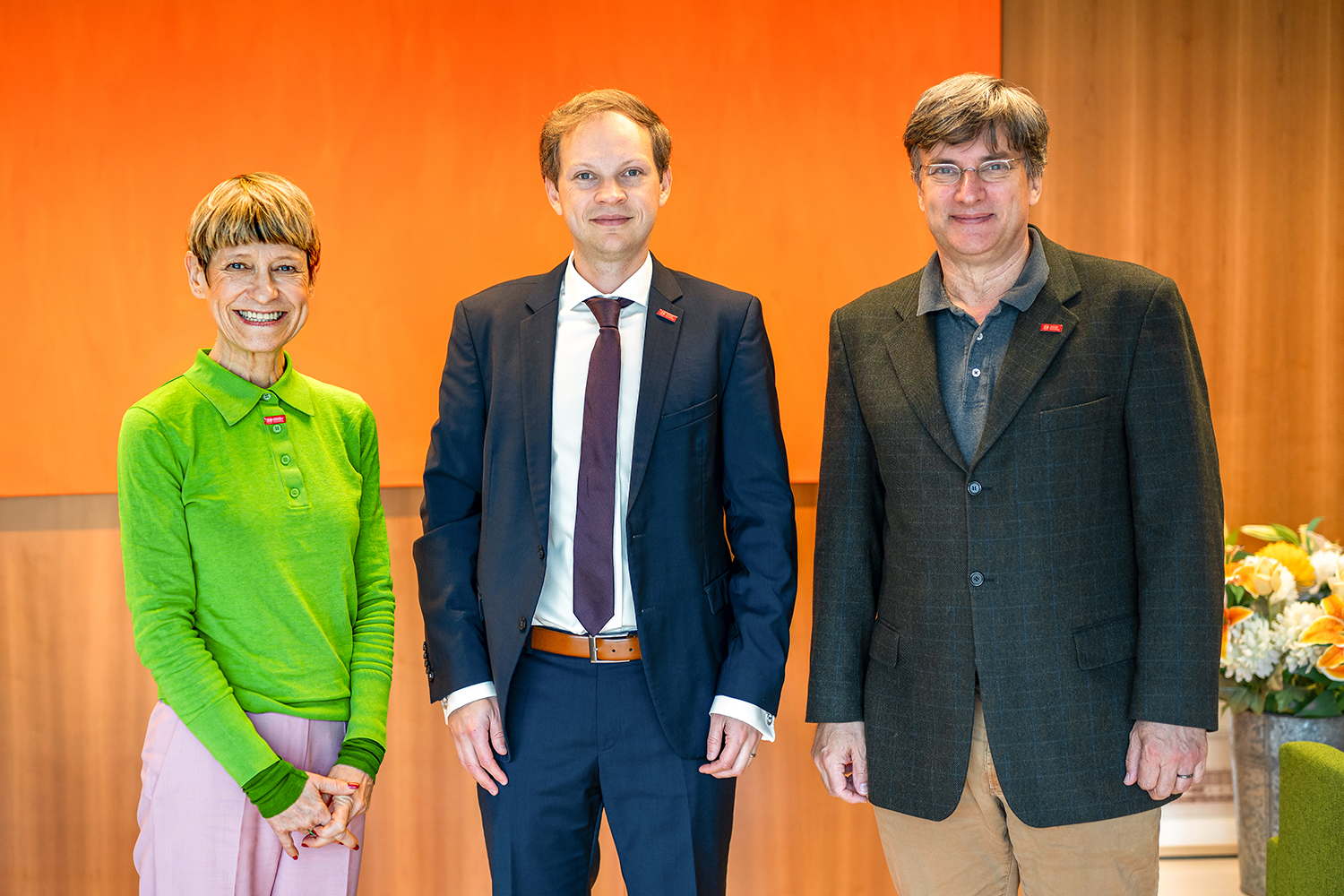“Synthetic chemistry is such a creative subject – almost like an art” Christopher J. Teskey is the new professor at the Institute of Organic Chemistry
Since 1 November, Christopher J. Teskey has been a professor at Technische Universität Braunschweig. He studied in Cambridge, gained his doctorate in Manchester, conducted research in Vienna and headed a junior research group at RWTH Aachen University. At TU Braunschweig, he will be working on the search for new methods for the formation of organic molecules as part of the “Engineering for Health” core research area. A longer-term goal of his research group is to develop new biocompatible tools that could be used in biology or medicine. He will also incorporate artificial intelligence into his research programme and strengthen links with industrial partners.

Christopher J. Teskey. Picture credits: Madeleine Franke/TU Braunschweig
Why did you choose TU Braunschweig?
I was very excited to receive the call to the TU Braunschweig because of possible collaborations with colleagues here. I felt that our research sat perfectly between several other research groups and that we would be able to build strong links here to further our long-term goals. This will hopefully allow us to make a strong contribution to the life science faculty. I was also impressed with the laboratory space that is available for my group so that we can continue to grow in the next years. Finally, Lower Saxony offers some exciting funding opportunities.
What exactly do you deal with in your research? How would you explain your work to someone outside your field?
My group is concerned with finding new methods to make organic molecules. These type of molecules are used every day in medicines, agrochemicals and materials. However, to make the next generation of functional chemicals (e.g. the next blockbuster drug), it is necessary to innovate new methods to build these molecules so that we can make structures that were not possible before. We are also interested in finding more efficient, alternatives to existing methods. This includes researching the use of visible light in our reactions as an energy source and also replacing rare, expensive metals with more widely available metal catalysts.

Prof. Dr. Christopher J. Teskey (m.) together with TU Braunschweig president Angela Ittel and Prof. Dr Frank Eggert, Dean of the Faculty of Life Sciences. Picture credits: Madeleine Franke/TU Braunschweig
Which research specialisms and projects will you be working on at TU Braunschweig?
We will continue to work on our main topics of developing new transition metal-catalysed reactions (transition metals are good catalysts because they can have different electron configurations, allowing them to interact with other molecules) and photocatalysed chemical reactions, i.e. those triggered by light. At the same time, I hope to go deeper into understanding these processes, incorporating aspects of artificial intelligence into our research programme and strengthen links with industrial partners. One final, long-term goal of mine is to develop methods that are biocompatible so that we can ultimately innovate new tools and techniques in biology and medicine. All of these topics come together under the banner of “Engineering for Health” at the TU Braunschweig where I hope my research group will play an active role in the years to come.
What motivated you to do research in this area?
I became taken with organic chemistry research during a summer internship between my bachelors and masters. As a bachelor student, you spend three years learning the language of chemistry but research then allows you to finally use it for something new! Synthetic chemistry is such a creative subject – almost like an art. For instance, you can make chemicals that have never been made before and bring together ideas from disparate areas. We also have much shorter discovery cycles than some other sciences – often an idea had in the morning can be tested and the first results might be ready by the next day. This is pretty intoxicating to be able to test your ideas so quickly! And of course, I truly believe that organic chemistry makes a big difference to our lives – even fundamental research can lead to huge quality of life improvements, though this often take time from the original discovery.
What does your day-to-day work look like in three key words?
Exchange, reflection, action.
